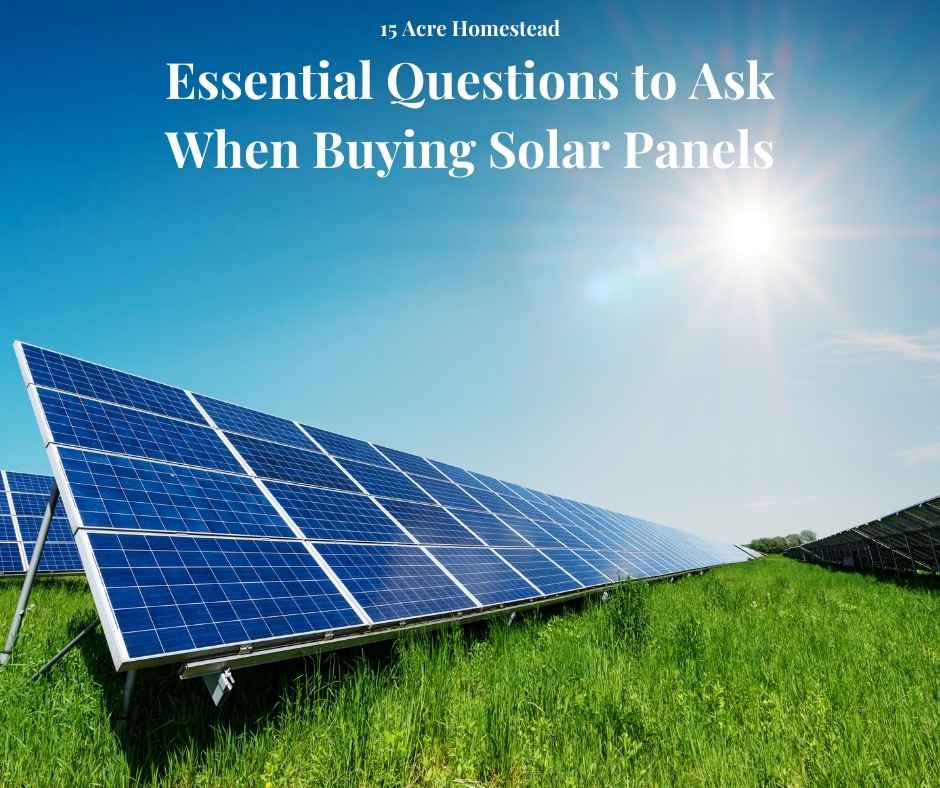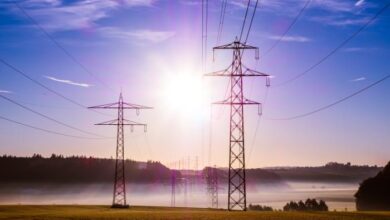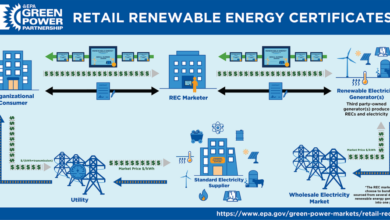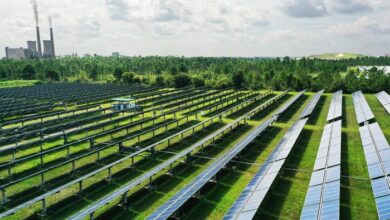
Interested in Solar Panels? Heres Some Advice
Interested in solar panels here is some advice – Interested in solar panels? Here’s some advice that can help you make an informed decision. Solar energy is becoming increasingly popular as people look for ways to reduce their energy bills, lessen their environmental impact, and gain energy independence. But with so many options and factors to consider, it can be overwhelming to know where to start.
This guide will walk you through the essential steps, from assessing your needs to choosing the right installer, to ensure you make the most of your solar investment.
We’ll delve into crucial aspects like understanding your energy consumption, evaluating your roof’s suitability, exploring different panel types and manufacturers, and calculating the costs involved. We’ll also cover the importance of financial incentives, the potential impact on your property value, and how to maintain your solar system for optimal performance.
Understanding Your Needs
You’re interested in solar panels, and that’s great! But before you jump in, it’s important to understand your needs and motivations. Why are you considering solar panels? What are your goals? Knowing your needs will help you choose the right system and make sure it’s a good investment.
Motivations for Solar
There are many reasons why people choose to go solar. Some common reasons include:
- Lowering Energy Bills:Solar panels can significantly reduce your reliance on the grid, leading to lower electricity bills. For example, a homeowner in California with a 5kW solar system could save an average of $1,000 per year on their electricity bill.
- Environmental Concerns:Solar energy is a clean and renewable source of power. By switching to solar, you can reduce your carbon footprint and help protect the environment.
- Energy Independence:Solar panels can give you more control over your energy usage. You’ll be less dependent on the grid, making you less vulnerable to power outages and fluctuations in energy prices.
Types of Solar Panels
There are different types of solar panel systems available, each with its own advantages and disadvantages.
- Rooftop Solar:This is the most common type of solar installation. Rooftop panels are mounted directly on your roof and are a great option for homeowners who want to generate their own electricity.
- Ground-Mounted Solar:Ground-mounted solar panels are installed on the ground, usually in an open space. This option is suitable for homeowners with large properties or businesses with available land.
- Hybrid Systems:Hybrid solar systems combine rooftop and ground-mounted panels to maximize energy production. This is a good option for homeowners who want to generate the most electricity possible.
Estimated Energy Consumption
To determine the size and type of solar system you need, it’s crucial to understand your household or business’s energy consumption. This information can be found on your utility bills.
- Average Monthly Energy Usage:This figure represents the total amount of electricity you use each month.
- Peak Demand:This is the highest amount of electricity you use at any given time. For example, if you run a business with heavy equipment, you might have a high peak demand.
Assessing Solar Panel Suitability
Before you jump into the world of solar panels, it’s crucial to assess whether your home is a good fit. This involves considering several factors, including your roof’s characteristics, your local climate, and any potential obstacles.
Roof Orientation and Size
The direction your roof faces (its orientation) and its size are key factors in determining solar panel suitability. South-facing roofs generally receive the most sunlight throughout the day, making them ideal for solar panel installation. However, even roofs with other orientations can still benefit from solar energy.The size of your roof will determine how many solar panels you can fit.
So you’re thinking about solar panels? Great choice! It’s a smart move for the environment and your wallet. But remember, you’ll need to do your research before diving in. Need a little break from all that serious stuff?
Check out this hilarious list of 40 paws-itively hilarious dog jokes for kids to get your funny bone tickling. Then, armed with a fresh perspective and a good laugh, you can get back to learning about solar panels!
You’ll need to ensure there’s enough space for the panels and any necessary equipment.
- South-facing roofsare optimal for solar energy production, as they receive the most direct sunlight throughout the day.
- West-facing roofscan also be suitable, especially in areas with longer daylight hours during the summer.
- East-facing roofsare less ideal, but can still generate some energy, particularly in the morning.
- North-facing roofsare generally not suitable for solar panel installation, as they receive minimal sunlight.
Shading
Any shading from trees, buildings, or other structures can significantly reduce the amount of sunlight your solar panels receive. To maximize solar energy production, it’s important to have a clear view of the sky.
Local Climate
Your local climate plays a significant role in determining the effectiveness of solar panels. The amount of sunshine your area receives, as well as the frequency of cloudy days and precipitation, will all impact solar panel output.
- Average sunshine hours: Areas with high average sunshine hours are ideal for solar panel installation.
- Weather patterns: Areas with frequent cloud cover or precipitation will have lower solar energy production.
Obstacles and Restrictions, Interested in solar panels here is some advice
There may be obstacles or restrictions that could affect your solar panel installation. These can include:
- Tree cover: Trees can block sunlight and reduce solar panel efficiency.
- Building codes: Local building codes may have specific regulations regarding solar panel installation.
- HOA regulations: Homeowner’s Associations (HOAs) may have restrictions on the appearance or placement of solar panels.
Exploring Solar Panel Options
Now that you’ve assessed your solar panel needs and suitability, it’s time to dive into the exciting world of solar panel options. This is where the fun really begins! Choosing the right panels can make a significant impact on your system’s efficiency, lifespan, and overall cost-effectiveness.
Solar Panel Types
Understanding the different types of solar panels is crucial for making an informed decision. Each type has its own advantages and disadvantages, influencing their performance and suitability for your specific needs.
- Monocrystalline Solar Panels: These panels are made from a single crystal of silicon, resulting in high efficiency and a sleek, black appearance. They are known for their excellent performance in hot climates and low light conditions.
- Polycrystalline Solar Panels: Composed of multiple silicon crystals, polycrystalline panels offer a slightly lower efficiency than monocrystalline panels.
They are generally more affordable and have a slightly lower aesthetic appeal due to their blue-ish appearance.
- Thin-Film Solar Panels: These panels are made by depositing a thin layer of photovoltaic material onto a substrate, such as glass or metal. They are flexible, lightweight, and can be installed on a variety of surfaces.
However, their efficiency is typically lower than crystalline panels, and they have a shorter lifespan.
Solar Panel Manufacturers and Warranties
The solar panel market is brimming with diverse manufacturers, each offering a unique set of features, warranties, and price points.
So you’re thinking about going solar, huh? That’s awesome! It’s a great way to save money and be more environmentally friendly. But while you’re weighing the pros and cons, it’s also important to be aware of the world around us.
The recent news about a possible noose found near a CIA facility c i a director issues warning after possible noose is found near facility is a reminder that we need to be vigilant and stand up against hate and intolerance.
Anyway, back to solar panels – remember to factor in your roof’s orientation and local climate when making your decision.
- Manufacturer Reputation: It’s essential to research the reputation and track record of potential manufacturers. Look for companies with a history of reliable products and excellent customer service.
- Warranties: Warranties are crucial for ensuring the longevity and performance of your solar panels.
Most manufacturers offer a 25-year warranty on their panels, covering defects in materials and workmanship.
- Performance Guarantees: Some manufacturers also offer performance guarantees, which ensure that the panels will continue to produce a certain amount of energy over time.
Thinking about going solar? It’s a great way to save money and reduce your environmental impact. But before you jump in, remember that the cost of living is rising for everyone, including PhD students who are struggling to make ends meet.
Check out this article about PhD students demanding wage increases to understand the challenges facing many in academia. Back to solar, make sure you factor in the initial investment and long-term savings to find the right system for your needs.
Solar Inverters
Solar inverters play a critical role in converting the direct current (DC) electricity generated by solar panels into alternating current (AC) electricity that can be used in your home.
- String Inverters: These inverters are typically less expensive and connect multiple solar panels in series. They are a common choice for residential solar systems.
- Microinverters: Each solar panel has its own microinverter, which optimizes energy production at the individual panel level.
This results in higher efficiency and better performance in shaded conditions.
- Power Optimizers: These devices sit between the solar panel and the inverter, maximizing energy production by optimizing the performance of each panel.
Calculating Solar Panel Costs
The cost of installing solar panels is a crucial factor in determining the feasibility of this investment. Understanding the various components of the total cost, including materials, labor, and permits, will help you make an informed decision. Moreover, exploring available financial incentives and rebates can significantly reduce the upfront cost and make solar energy more accessible.
Breakdown of Solar Panel Costs
The cost of installing solar panels can vary widely depending on factors such as the size of the system, the type of panels, and the location. However, the primary components of the total cost typically include:
- Solar Panels:The panels themselves are the heart of the system and represent a significant portion of the total cost. The price per watt of solar panels has been steadily declining in recent years, making solar energy more affordable. The cost of panels can range from $2 to $4 per watt, depending on the efficiency and brand.
- Inverter:The inverter converts the direct current (DC) electricity generated by the solar panels into alternating current (AC) electricity that can be used in your home. Inverters are also becoming more efficient and affordable, with prices ranging from $1 to $2 per watt.
- Mounting System:The mounting system securely attaches the solar panels to your roof or ground. The type of mounting system will depend on the roof type and the location of the panels. The cost of mounting systems can vary depending on the complexity of the installation and the materials used.
- Labor:The cost of labor for installing solar panels can vary significantly depending on the size of the system, the complexity of the installation, and the location. Labor costs typically range from $20 to $50 per hour.
- Permits and Inspections:Obtaining permits and inspections is essential for ensuring that the solar panel installation meets local building codes and safety regulations. The cost of permits and inspections can vary depending on the location and the size of the system.
Financial Incentives and Rebates
Many governments and utility companies offer financial incentives and rebates to encourage the adoption of solar energy. These incentives can significantly reduce the upfront cost of solar panel installation and make solar energy more affordable. Some common incentives include:
- Federal Tax Credit:The federal government offers a 30% tax credit for residential solar panel installations. This credit can significantly reduce the amount of taxes you owe.
- State and Local Rebates:Many states and local governments also offer rebates for solar panel installations. The amount of the rebate can vary depending on the state and the size of the system.
- Net Metering:Net metering allows homeowners to sell excess solar energy generated by their panels back to the utility grid. This can help offset the cost of electricity and further reduce your energy bills.
Payback Period for Solar Panels
The payback period for solar panels is the amount of time it takes for the energy savings from the system to offset the initial cost of installation. The payback period can vary depending on factors such as the size of the system, the cost of electricity in your area, and the amount of financial incentives you receive.
The payback period can be calculated using the following formula:Payback Period = Initial Cost / (Annual Energy Savings
Annual Operating Costs)
For example, a homeowner in California who installs a 5-kilowatt solar panel system for $15,000 and saves $1,500 per year on electricity bills would have a payback period of 10 years ($15,000 / ($1,500
$0)).
Resale Value of Solar Panels
Solar panels can also increase the resale value of your home. Studies have shown that homes with solar panels sell for a premium compared to similar homes without solar panels. This premium can vary depending on the location, the size of the system, and the age of the panels.
Evaluating Solar Panel Performance
Solar panels are a fantastic way to harness the power of the sun and reduce your reliance on traditional energy sources. But understanding how they work and what factors influence their efficiency is crucial for making informed decisions.
Solar Panel Efficiency
Solar panel efficiency refers to how effectively they convert sunlight into electricity. It’s measured as a percentage, with higher percentages indicating better performance. The efficiency of a solar panel is influenced by several factors:
- Cell Type:Different types of solar cells, such as monocrystalline, polycrystalline, and thin-film, have varying efficiencies. Monocrystalline cells generally have the highest efficiency, while thin-film cells offer flexibility and lower costs.
- Panel Design:Factors like the number of cells, the arrangement of cells, and the use of anti-reflective coatings can affect panel efficiency.
- Temperature:Solar panels perform best in cool temperatures. As the temperature rises, their efficiency decreases.
- Angle of Incidence:The angle at which sunlight hits the panel impacts the amount of energy captured. Solar panels are typically installed at an optimal angle to maximize energy production throughout the year.
- Shading:Any obstruction blocking sunlight from reaching the panels, such as trees or buildings, will reduce their output.
Net Metering
Net metering is a billing mechanism that allows homeowners with solar panels to sell excess electricity generated by their system back to the grid.
Net metering essentially creates a “virtual” energy bank where you can store the electricity you generate.
When your solar panels produce more electricity than your home needs, the excess is fed back into the grid. During periods when your solar panels aren’t producing enough electricity, you can draw power from the grid, and your energy bill is adjusted based on the net energy flow.
Impact on Property Value
Installing solar panels can increase your property value.
A 2022 study by the National Renewable Energy Laboratory (NREL) found that homes with solar panels sold for an average of 4.1% more than comparable homes without solar.
This is because solar panels provide a tangible benefit to potential buyers by reducing energy costs and enhancing sustainability. However, the specific impact on property value can vary depending on factors such as the size of the system, the age of the panels, and the local real estate market.
Choosing a Solar Panel Installer

Installing solar panels is a significant investment, and choosing the right installer is crucial for ensuring a successful project. A reputable installer will not only install your panels correctly but also provide ongoing support and maintenance.
Finding Reputable Solar Panel Installers
Finding a qualified and reliable solar panel installer is essential for a successful project.
- Start with recommendations: Ask friends, family, and neighbors who have installed solar panels for recommendations. They can provide valuable insights into the installer’s professionalism, quality of work, and customer service.
- Check online directories and review websites: Websites like Angie’s List, Yelp, and the Better Business Bureau (BBB) offer ratings and reviews from previous customers. These platforms can provide insights into the installer’s reputation and customer satisfaction.
- Look for certifications and licenses: Ensure the installer is certified by reputable organizations, such as the North American Board of Certified Energy Practitioners (NABCEP) or the Solar Energy Industries Association (SEIA). These certifications demonstrate the installer’s knowledge and expertise in solar panel installation.
- Verify insurance and bonding: Ask for proof of liability insurance and workers’ compensation coverage. This protects you in case of accidents or damage during the installation process.
Obtaining Multiple Quotes and Comparing Bids
Getting multiple quotes from different installers allows you to compare prices, services, and warranties.
- Request detailed quotes: Ensure the quotes include the cost of all materials, labor, permits, inspections, and warranties. This allows for a fair comparison between different installers.
- Compare warranties: Pay attention to the warranty periods for the panels, inverters, and installation work. Longer warranties provide greater peace of mind and protection against potential issues.
- Ask about financing options: Some installers offer financing options, which can make solar panels more affordable. Compare interest rates, terms, and repayment options to find the best deal.
Analyzing the Installer’s Track Record, Certifications, and Customer Reviews
Investigating an installer’s experience, certifications, and customer feedback helps you make an informed decision.
- Check the installer’s experience: Ask how long the installer has been in business and how many solar panel installations they have completed. Experience is an indicator of expertise and reliability.
- Review customer testimonials: Read online reviews and testimonials from previous customers to get an idea of the installer’s communication, professionalism, and overall satisfaction.
- Verify certifications and licenses: Ensure the installer is certified by reputable organizations and has the necessary licenses to operate in your area.
Maintaining Your Solar Panel System: Interested In Solar Panels Here Is Some Advice
Solar panels are a fantastic investment in clean energy, but like any technology, they require regular maintenance to ensure optimal performance and longevity. Neglecting maintenance can lead to reduced energy output, increased repair costs, and a shorter lifespan for your system.
Regular Cleaning and Inspections
Keeping your solar panels clean is crucial for maximizing their efficiency. Dust, dirt, bird droppings, and other debris can accumulate on the panel surfaces, blocking sunlight and reducing energy production. Here’s how to maintain your solar panels:
- Regular Cleaning:Clean your panels at least every 3-6 months, depending on your location and the amount of dust and debris in your area. Use a soft cloth or brush and a mild cleaning solution (like soapy water). Avoid harsh chemicals that can damage the panels.
- Inspect for Damage:During cleaning, carefully inspect your panels for any signs of damage, such as cracks, scratches, or loose connections. Address any issues promptly to prevent further problems.
Troubleshooting Common Solar Panel Issues
Solar panels are generally reliable, but they can sometimes experience problems. Here are some common issues and how to troubleshoot them:
- Reduced Energy Output:If your system isn’t generating as much power as expected, check the following:
- Dirty Panels:Clean your panels thoroughly to ensure they are free of dirt and debris.
- Shading:Ensure that trees or other objects are not casting shadows on your panels during peak sunlight hours.
- Faulty Wiring:Inspect the wiring for any loose connections or damage.
- Inverter Issues:Check if your inverter is functioning properly. A malfunctioning inverter can significantly reduce energy output.
- Power Outage:If your solar system suddenly stops working, check the following:
- Circuit Breaker:Ensure that the circuit breaker for your solar system is not tripped.
- Inverter:Verify that the inverter is switched on and functioning correctly.
- Grid Connection:If you have a grid-tied system, check if there is a power outage in your area.
Conclusive Thoughts
Embarking on your solar journey is a significant decision, but it can also be a rewarding one. By carefully considering your needs, exploring the options available, and partnering with a reputable installer, you can harness the power of the sun to meet your energy needs and contribute to a more sustainable future.
Remember, it’s about making an informed choice that aligns with your goals and helps you achieve energy independence and environmental responsibility.






